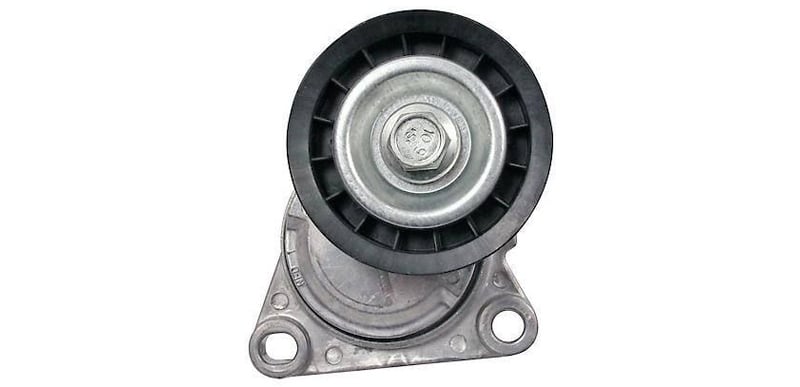Litens Aftermarket’s tensioner is available for all Mazda applications between the years 2006 – 2017 covering a total of 30,000 vehicles in operation
Dublin, Ohio—Litens Aftermarket has introduced its latest OE improvement, the 999420A belt tensioner. This new tensioner has improvements to the OE design, enabling an efficient belt tensioner replacement process by a single technician.
This tensioner was engineered to improve upon the OE design by addressing the challenges technicians encounter during the installation of belt tensioners, particularly in the confined spaces of engine compartments. Focusing on ease of installation, Litens integrated a design advancement to simplify the installation process significantly, the company stated.
The design upgrade is the lift feature, placed in an offset position between the mounting bolts that secure the tensioner, adding an extra inch under the lip for a technician, providing greater ease of access. A tensioner is typically located at the side of the engine compartment where there is very little room for working hands to get a wrench on the tensioner to loosen the belt during installation.
This configuration facilitates easy access for technicians to position their wrench when loosening the belt, streamlining the installation process even in tight engine compartments. Additionally, the lift feature is designed for a 14 mm hex wrench consistent with OE design, rather than using a 15 mm hex wrench traditionally used on aftermarket tensioners so the technician has one less tool to keep track of throughout the replacement process.
“As an engineering company that manufactures parts, we recognize the struggles that come with installing these parts in tight space,” said Randy Wolters, product manager, belt tensioning products, Litens Aftermarket. “With these design improvements we’re able to give the tech an extra set of hands and save them from the bloody knuckles you get when working in such a tight space.”
This new tensioner is available for all Mazda applications between the years 2006 – 2017 covering a total of 30,000 vehicles in operation.









Comments are closed.